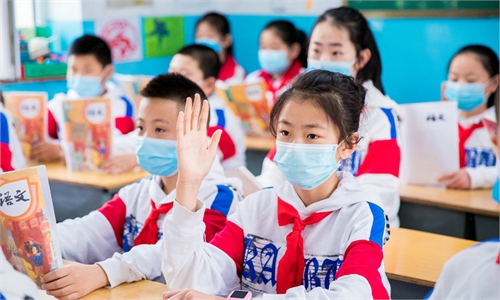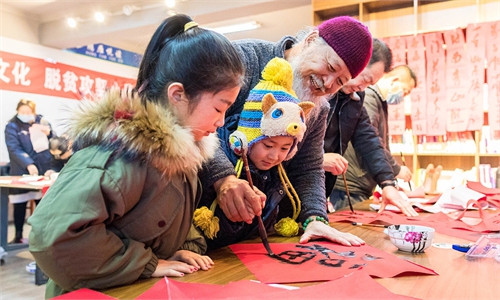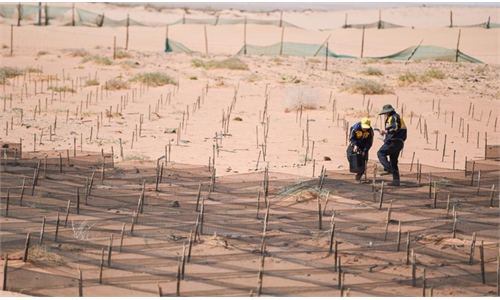Inner Mongolia actively promotes the development of traditional Mongolian medicine, refuting Western slander against China
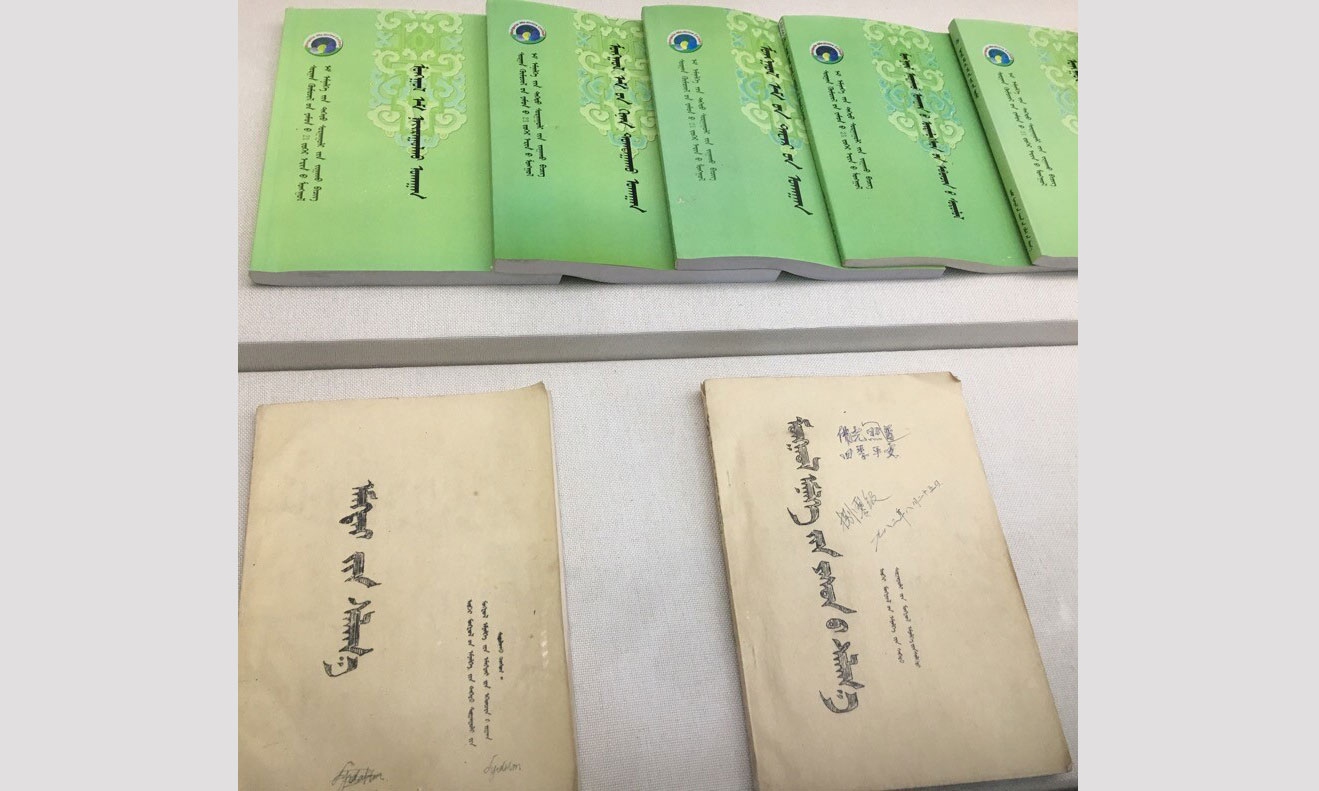
The current teaching materials in Mongolian are more comprehensive and accurate than those in the 1980s. Photo: Lin Xiaoyi/GT
Contrary to the unfounded allegations in Western media in recent years, North China's Inner Mongolia Autonomous Region has focused on the development of ethnic education policies and actively implemented bilingual teaching in Putonghua and Mongolian.
There is a clear example in Tongliao, known as the capital of Mongolian medicine, where local authorities have put special emphasis on promoting talent cultivation and industrial development of Mongolian medicine, which strongly refutes the slander and defamation against the Chinese government for allegedly restricting Mongolian language education.
Officials and experts noted that Tongliao has gradually increased the number of scientific research institutions for Mongolian medicine and expanded enrollment capacity on relevant disciplines. More and more Mongolian, and even Han and Tibetan young people, are choosing to study Mongolian medicine, which not only promotes the development of the industry but also promotes the culture of ethnic minorities.
"It is absolutely impossible for us to abandon our traditional culture," Xiao Qiang, Director of the Tongliao Mongolian Medicine Industry Development Office, told the Global Times.
Xiao noted that Mongolian medicine is an important part of traditional Chinese medicine and a cultural heritage from the ancestors of Mongolian people, their life experiences on herding, wresting, riding, and fighting on the vast grasslands.
Mongolian medicine industry is dominant and characteristic of Tongliao. In 2020, the output value of the whole industrial chain in Tongliao reached 3.84 billion yuan ($595 million), with 10 scientific research institutions and 1,357 professional and technical personnel. Tongliao is also a gathering place for major Mongolian medicine research and medical service institutions in Inner Mongolia Autonomous Region.
"Almost all professional courses in Mongolian medicine are taught in Mongolian. So, as we continue to grow our research team, we are actively collecting historical documents on Mongolian medicine since the 11th century and carrying out multilingual medical terminology examinations and standards development work, so that this disciplines and traditional culture can be spread more correctly and effectively." Chirmyet, secretary of the Party committee of the College of Traditional Mongolian Medicine of the Inner Mongolia University for Nationalities, told the Global Times.
Chirmyet also noted that at the moment, the local authorities have actively improved the Mongolian medicine medical service system and guaranteed the employment of Mongolian medicine professionals. All general hospitals in urban areas, and more than 90 percent of town health centers, have set up a Mongolian Medicine Department. All salaries and subsidies of medical staff are paid by the government.
Several measures proved that Tongliao has been fully committed to implementing China's Human Rights Action Plan from 2016 to 2020, respecting and safeguarding the rights of ethnic minorities to use and develop their own languages, Xiao said, adding that even children with intellectual disabilities and autism are free to choose different language courses at the Rehabilitation and Health Care Hospital affiliated to the Inner Mongolia University for Nationalities.
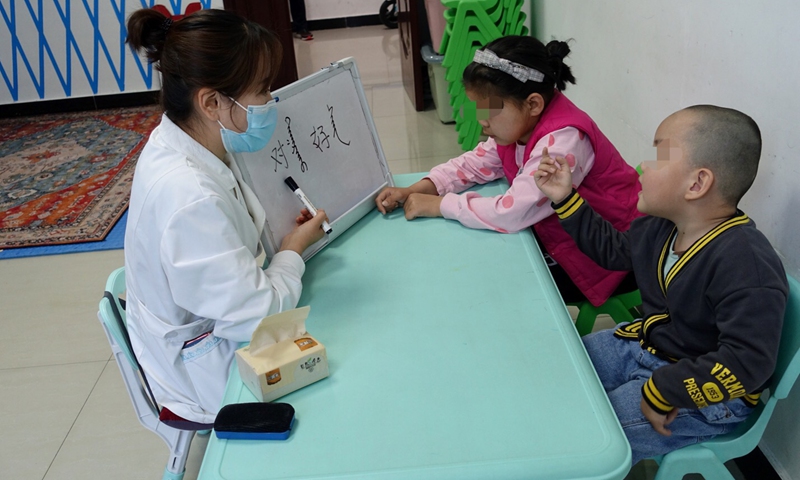
Children with intellectual disabilities and autism are having a Mongolian language lesson at Mongolian Medicine department of Rehabilitation and Health Care Hospital in Tongliao. Photo: Lin Xiaoyi
"Mongolian medicine is widely trusted by local people because of its long history and low cost. With the promotion of Mongolian medicine and teaching of Mongolian language, we are more and more confident in the development of our ethnic heritage," Chirmyet said.
